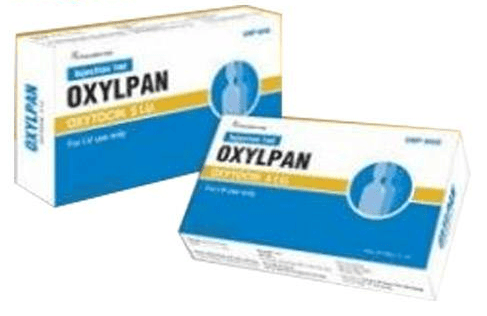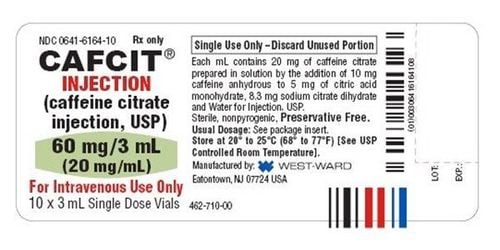This is an automatically translated article.
The article was professionally consulted by Specialist Doctor II Cao Thi Thanh - Pediatrician - Department of Pediatrics - Neonatology - Vinmec Hai Phong International General Hospital. Dr. Thanh has worked for 25 years in the treatment of neonatal pediatric diseases.Feeding a premature baby is one of the biggest challenges families face before they can bring their babies home from the hospital. This is because premature babies are not fully developed at birth and may not have the strength or coordination to breastfeed or bottle feed. So, how to feed premature babies at the Neonatal Intensive Care Unit (NICU)?
1. Why is it difficult to raise a premature baby?
Although breastfeeding is easily accomplished by term infants, breastfeeding presents a challenge for premature infants. Whether bottle-feeding or breast-feeding, babies need to develop three key skills to be able to suckle effectively:Babies must suckle: Premature babies are born without mature sucking skills. To breastfeed or bottle feed, your baby needs to be coordinated and healthy enough to suckle. Swallowing: Swallowing large amounts of milk takes a lot of effort, and babies need to develop muscles in their tongue and jaw to be able to swallow well. Coordinating sucking, swallowing and breathing: This is the biggest difficulty in suckling skills, it can take some time for babies to learn to coordinate breathing with swallowing milk. Caring for a premature baby who has not yet developed these three skills can be difficult for parents, healthcare workers, and the child himself. Premature babies who are not properly suckled and swallowed will quickly become exhausted during feeding, so every feed is a workout.
Newborns don't coordinate sucking, swallowing and breathing well which is scary when a baby sucks. At first, babies may enjoy sucking and swallowing milk. But suddenly, he may realize that it's time to breathe and he doesn't know how to breathe. At that time, the baby may choke and regurgitate milk or stop breathing completely until the feeding stops.

2. How to feed a premature baby with breast milk
Breast milk provides many health benefits, breast milk is important and wonderful for all babies, especially premature or sick babies. But many babies in the NICU are not ready to breastfeed at first.Mothers can learn how to pump breast milk and then, the health workers will feed the baby by pumping breast milk into the baby's stomach through a nasogastric tube. If your baby is unable to breastfeed, feeding through a catheter is the best way to feed your baby with breast milk.
Breast milk is truly a unique and beneficial source of nutrition that you can give your baby. And when your baby is ready to suckle, you can start breastfeeding directly.
Here are some guidelines to help moms overcome the challenges of breastfeeding in the NICU:
Propose your breastfeeding wishes to the medical staff directly caring for you. child care. Seek advice and experience from a lactation consultant at the NICU and other NICU mothers who are successfully breastfeeding or breastfeeding. Start pumping as soon as possible. Use the vacuum that works best for you and try a hospital's well-functioning electric-powered vacuum. Create a relaxing routine so that you can allow your breasts to produce milk when it's time to pump or breastfeed. When you pump, be sure to empty your breasts for the last milk, which contains the highest amount of fat calories your baby needs. Pump for a minute or two after the milk flow stops or comes out in slow drops. Persevere through erratic periods of milk supply. The amount of milk you can pump may be small at first, so to increase your milk supply you should try to get more rest, drink more water and pump more often. Your milk supply can be produced naturally in more quantity when you relieve stress. If your baby is able to suckle, he or she will be more receptive to sucking when awake and not fussy. When breastfeeding, feed your baby in a quiet and dark room so that the baby is not distracted. Start breastfeeding by Kangaroo method (Kangaroo Care) or hold the baby to the mother's bare chest. Performing the Kangaroo method will help both the baby and the mother relax and skin-to-skin contact can induce the sensation of suckling and the start of milk production. When your baby starts to touch your skin, direct him to your nipple to begin sucking on your breast milk. If your baby is having trouble latching on to the nipple, try using a breast pump to suck the nipple out, before giving it to your baby. Or if breast milk comes out at the start of feeding and is overwhelming your baby, pump a small amount before feeding, to reduce the pressure or volume of milk in your breasts. In these ways, babies can breastfeed properly without swallowing air or choking.

3. Guidelines for formula feeding
Infants also thrive when formula-fed. There are several formula options available and the NICU Medical staff will recommend one for your baby.If you want to breastfeed but then decide not to or are forced to stop breastfeeding for various reasons, you may feel frustrated. Remember that you can also create a bond with your baby through bottle-feeding.
You can experience the closeness of breastfeeding, by holding your baby against warm skin and letting your baby watch your face. You can also continue to do Kangaroo (Kangaroo Care) for many months.
You may need to wait a while before giving your baby a bottle. If your baby is born too preterm or sick, he or she may need to first eat formula from a thin tube that is inserted directly into the stomach through the nose or mouth. Your nurse can show you how to feed your baby this way so that you can have regular contact with your baby.

As a key area of Vinmec Health System, Pediatrics Department - Vinmec International General Hospital always brings satisfaction to customers and is highly appreciated by industry experts thanks to the following advantages:
gathers a team of leading doctors and doctors in Pediatrics: including leading experts, with high professional qualifications (professors, associate professors, doctorates, masters), experienced, having worked in different hospitals. big hospitals like Bach Mai, 108.. The doctors are all well-trained, professional, have a heart - reach, understand young psychology. In addition to domestic pediatric specialists, the Department of Pediatrics also has the participation of foreign experts (Japan, Singapore, Australia, USA) who are always pioneers in applying the latest and most effective treatment regimens. . Comprehensive services: In the field of Pediatrics, Vinmec provides a series of continuous medical examination and treatment services from Newborn to Pediatric and Vaccine,... according to international standards to help parents take care of their baby's health from birth to childhood. from birth to adulthood Specialized techniques: Vinmec has successfully deployed many specialized techniques to make the treatment of difficult diseases in Pediatrics more effective: neurosurgery - skull surgery, stem cell transplantation. blood in cancer treatment. Professional care: In addition to understanding children's psychology, Vinmec also pays special attention to the children's play space, helping them to have fun and get used to the hospital's environment, cooperate in treatment, improve the efficiency of medical treatment.
Please dial HOTLINE for more information or register for an appointment HERE. Download MyVinmec app to make appointments faster and to manage your bookings easily.
Reference source: babycenter.com; verywellfamily.com













